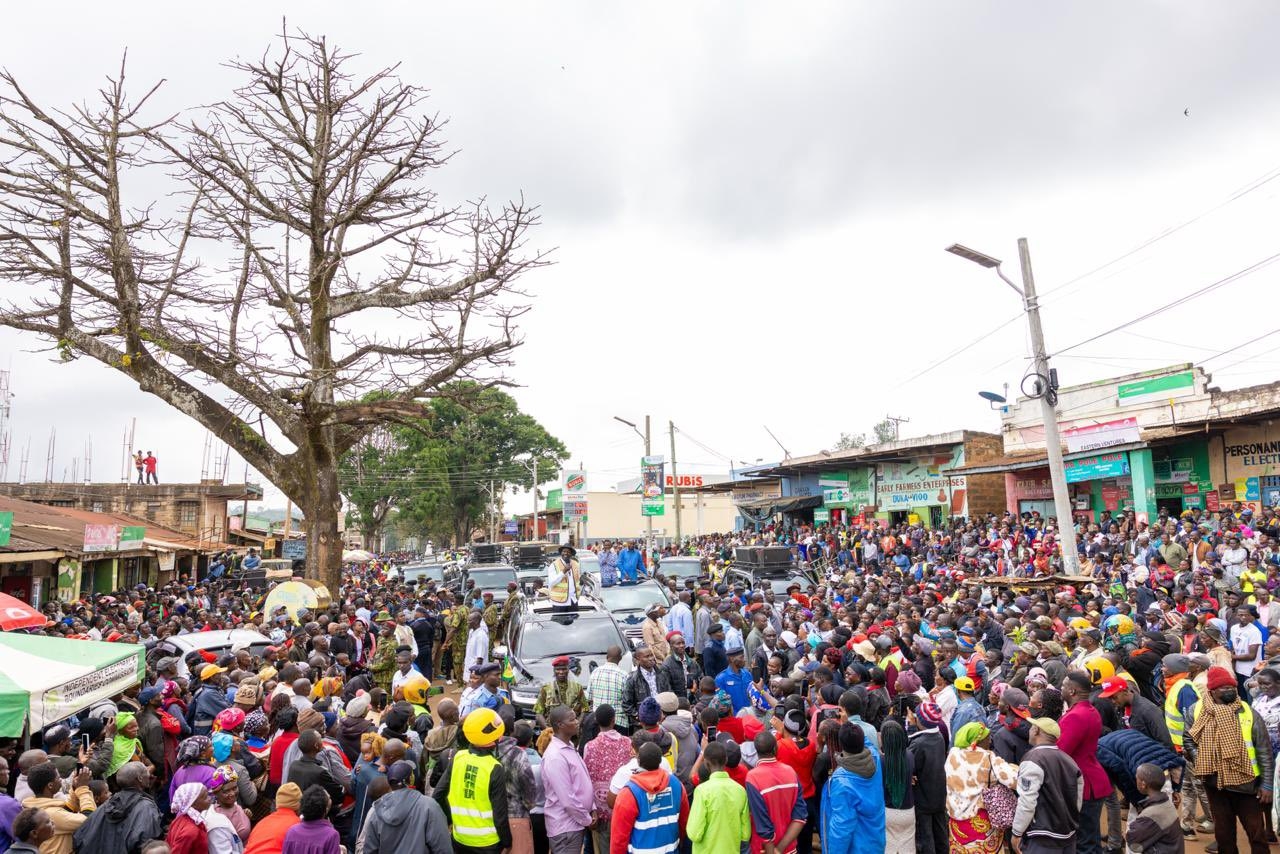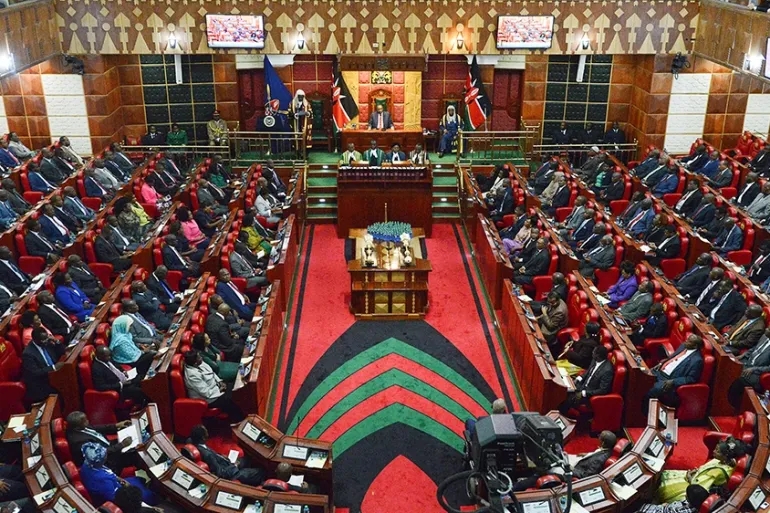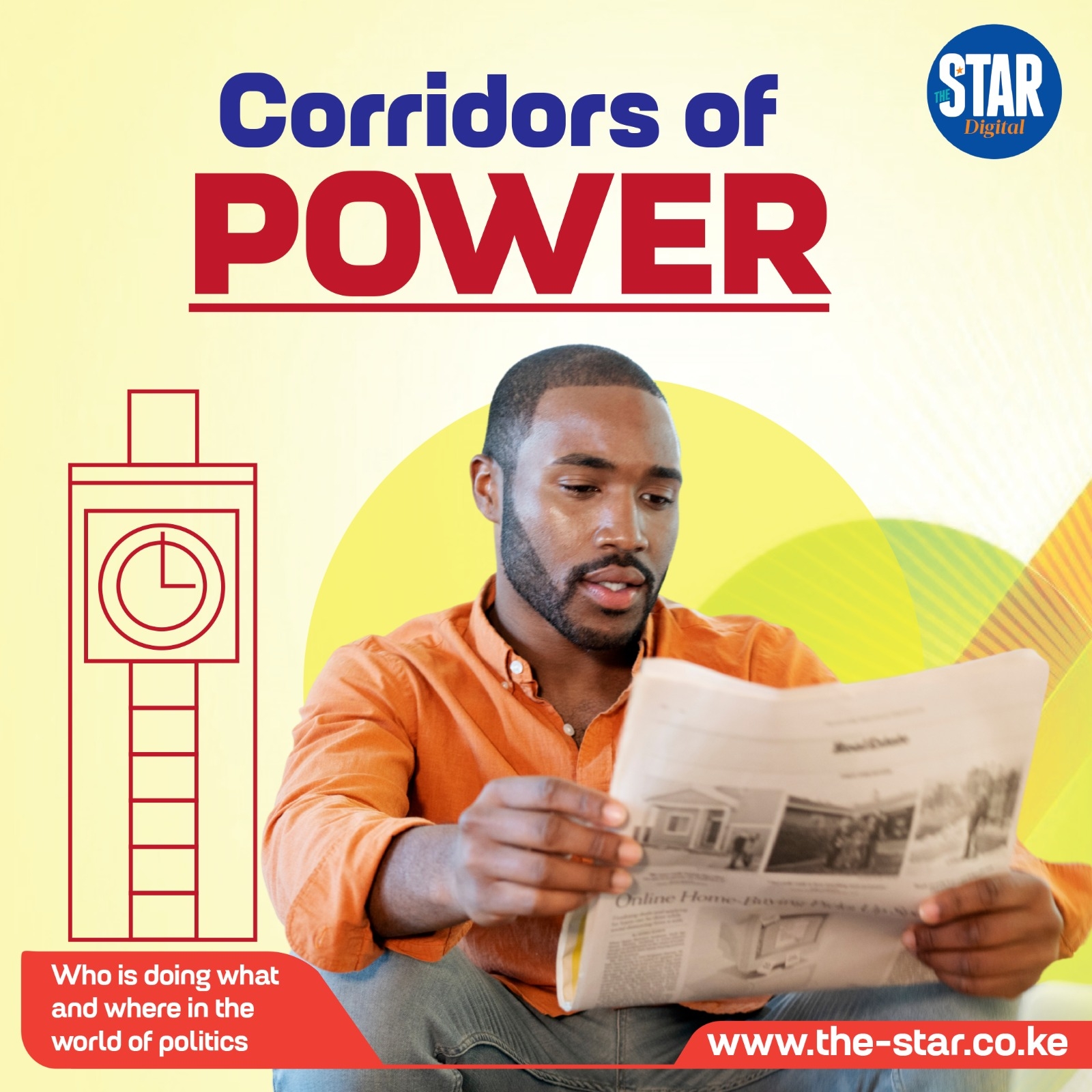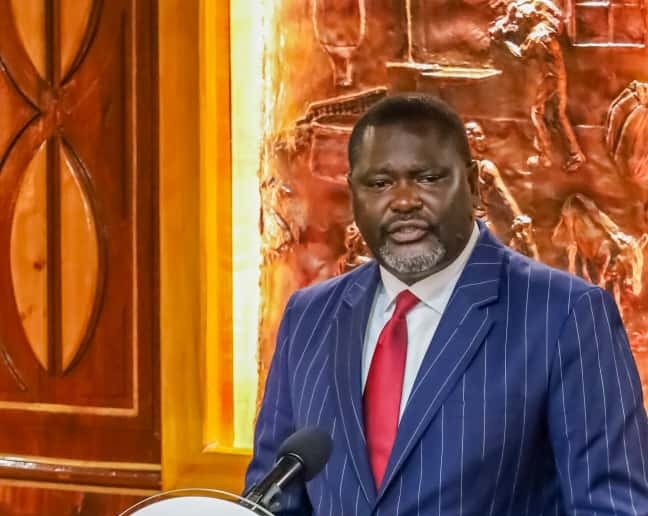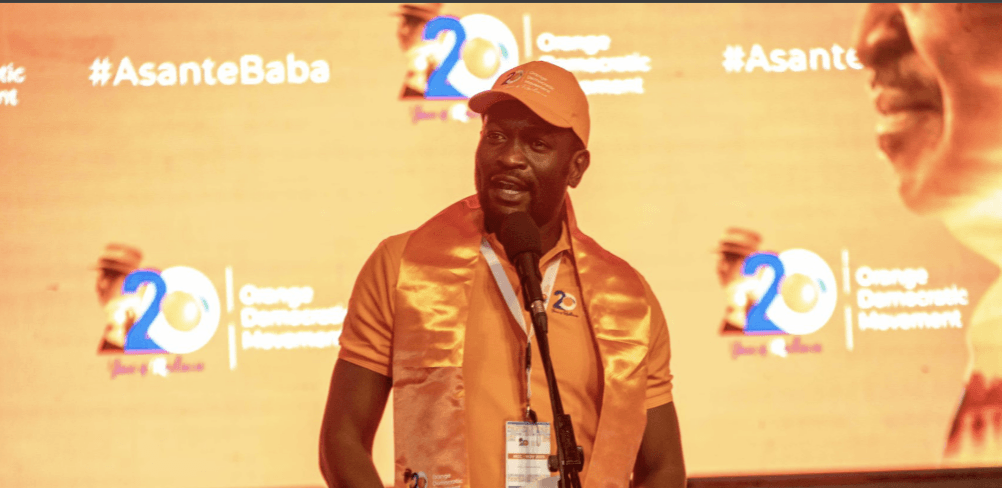
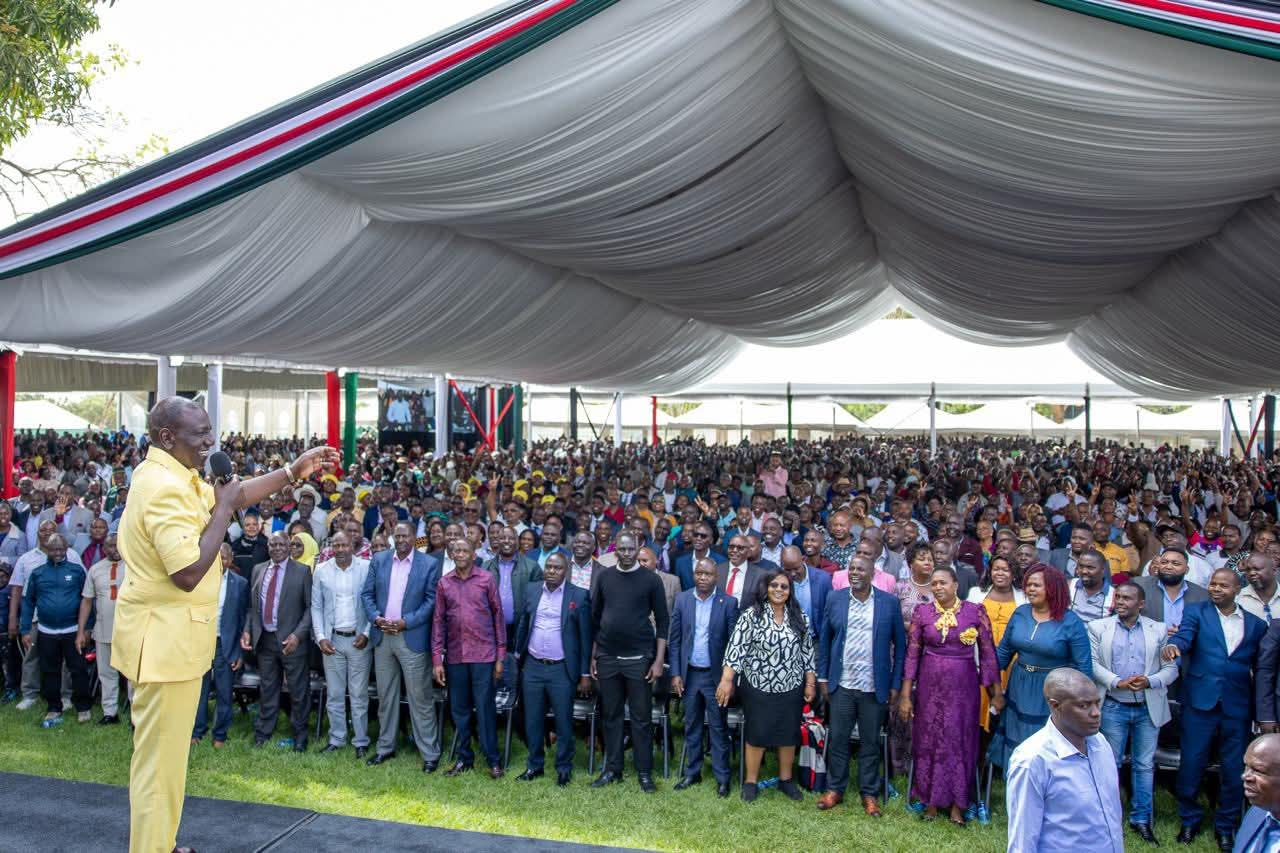
President William Ruto has unveiled a Sh110 billion investment plan aimed at transforming the livelihoods of the people of Kitui, Machakos, and Makueni counties.
Speaking at Kitui State Lodge on Saturday, the President said this is the highest amount of resources any government has ever allocated to critical areas of the economy in the region.
“No administration before this one has spent Sh64 billion in Ukambani at once. And you're witnesses,” he said, addressing over 10,000 grassroots leaders from the three counties at the close of his four-day tour of the region.
Sh64 billion will go towards building 44,000 affordable housing units, 39 modern markets, and 15,000-bed student hostels.
“With our affordable housing programme, we are changing the landscape and the lifestyle of Kenya, and we are doing it with our own resources,” he added.
Deputy President Kithure Kindiki, Labour Cabinet Secretary Alfred Mutua, National Assembly Majority Leader Kimani Ichung’wa, National Security Advisor Monica Juma, former Kitui Senator David Musila, MPs, MCAs, and Principal Secretaries Terry Mbaika and Jonathan Mueke were present.
The President also announced that the government is investing Sh30 billion to upgrade 600 kilometres of roads in the first phase of development. Sh6.7 billion has been allocated to connect 51,000 households in the three counties over the next six months.
To address water scarcity, President Ruto said the Thwake Multipurpose Dam would be completed soon at a cost of Shh9.6 billion funded by the African Development Bank. Umaa Dam in Kitui County is expected to be completed next year at KSh230 million.
In Machakos County, Sh700 million has been set aside to compensate residents affected by the Muwongoni Dam project.
The President assured leaders that construction work would commence soon. He also confirmed that the proposed High-Grand Falls Dam, straddling Kitui and Tharaka-Nithi counties, remains a top priority for the government.
Despite progress, President Ruto noted that many Kenyans still lack basic services such as power, roads, and clean water, highlighting the need for a National Infrastructure Fund.
“I will be in Parliament next week for the State of the Nation Address and I will explain to MPs the need for the fund to finance transformative projects,” he said. Through the fund, Kenya aims to raise Sh4.5 trillion to tarmac 20,000 kilometres of roads, build 50 mega dams to irrigate 2.5 million acres, and generate 10,000MW within five to ten years.
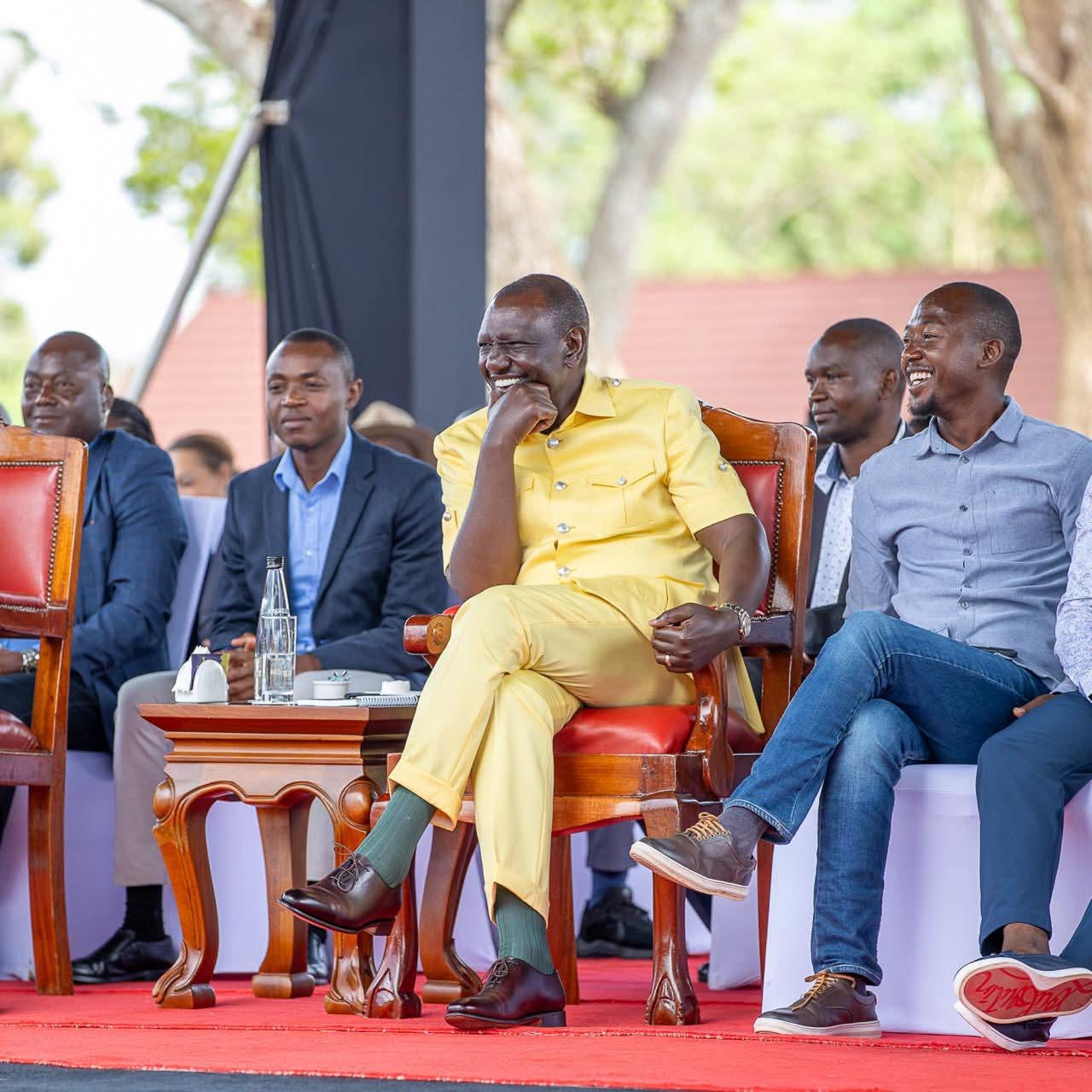
The President said he will commission a Sh40 billion clinker and cement factory in Mwingi early next year, which will create 5,000 jobs.
He urged local leaders to embrace the investor. He also announced a Sh800 million stadium in Machakos Town and allocated Sh230 million to complete the Enziu Bridge in Mwingi before the next long rains season.
During the tour, President Ruto issued over 45,000 title deeds in Makueni and Kitui counties and pledged to accelerate the process in all three counties.
He launched construction of key roads, including the 20km Emali-Matiliku in Makueni (Sh1.1 billion), 13km Kamuw’ongo-Kandwia in Kitui (Sh1 billion), and Kivandini-Miseleni in Machakos (Sh1.7 billion). He also directed immediate works on the Kyuso-Tseikuru road, noting, “Kenyans there have suffered dust and mud long enough.”
To address insecurity, he instructed the Ministry of Defence to explore setting up a military camp as a buffer zone with neighbouring counties.
President Ruto also called on young people to apply for the National Youth Opportunities Towards Advancement (NYOTA) initiative, which provides a Sh50,000 grant to boost businesses.
He urged critics and political competitors to move beyond “empty sloganeering,” stating, “We have raised the bar of leadership in Kenya. It is no longer about personalities and slogans, but agenda and plans for Kenya.”
Deputy President Kindiki praised the leadership approach, saying, “A nation is transformed through deeds and by taking national development to all regions of our country, as the President has done.”
MPs present included Vincent Kawaya, Mwengi Mutuse, Rachel Nyamai, Nimrod Mbai, Charles Nguna, Joshua Mwalyo, Caleb Mule, Fabian Kyule, and nominated Senators Tabitha Mutinda and Beth Syengo.
The four-day tour highlighted the government’s commitment to improving infrastructure, housing, water access, roads, and job creation in Ukambani.







